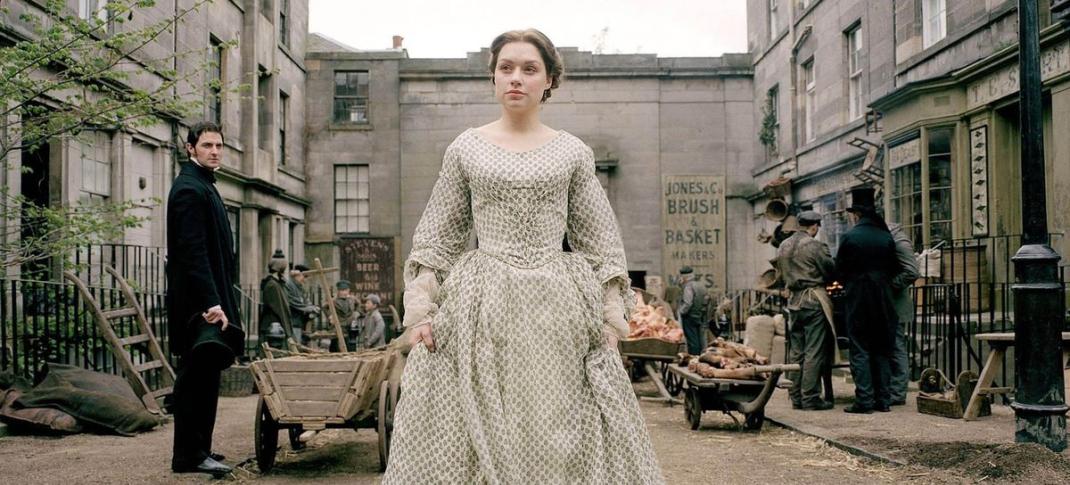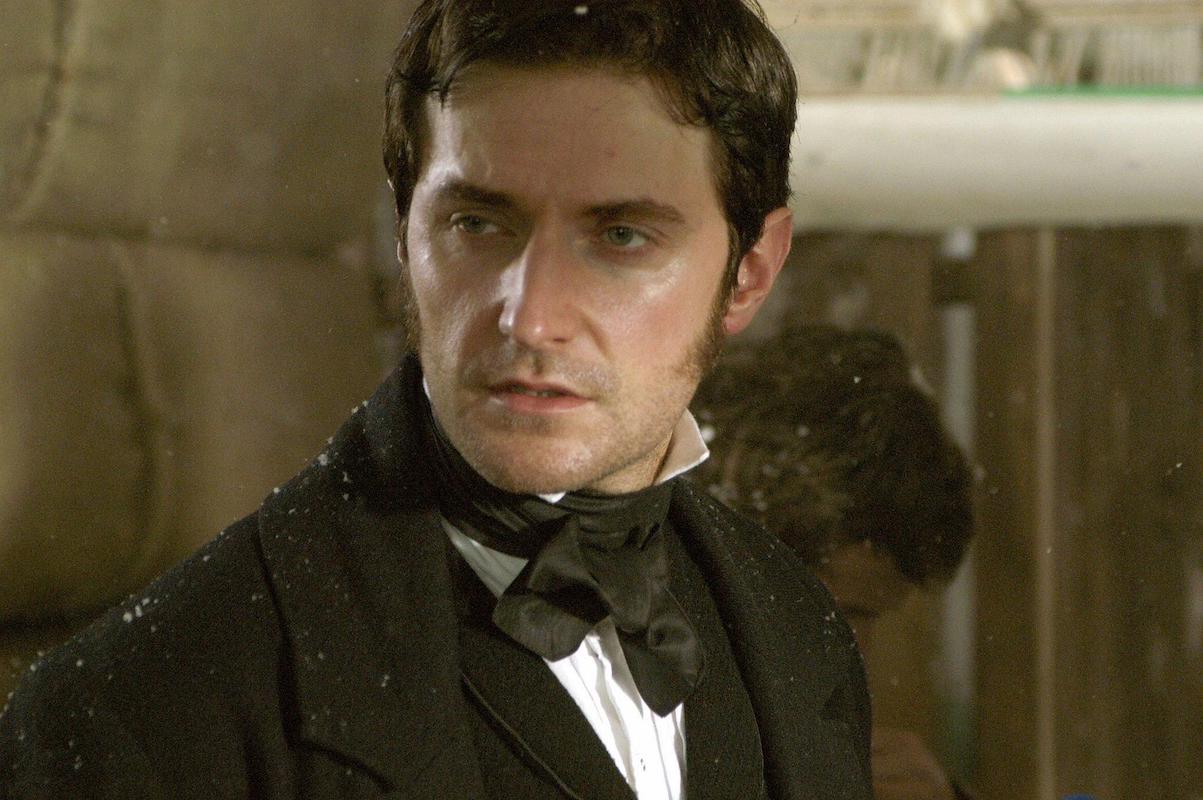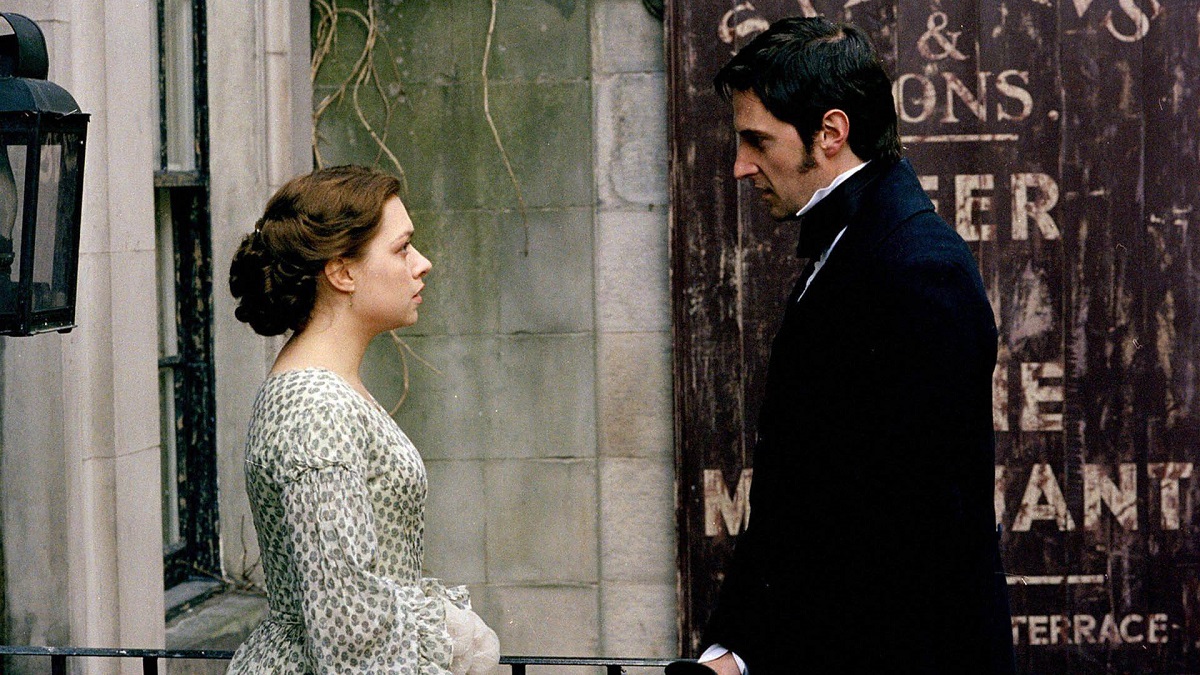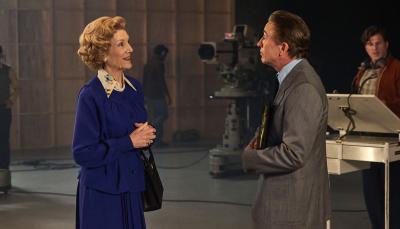Classics Revisited: 'North and South' is a Period Romance with Something to Say

Daniela Denby-Ashe in "North and South"
(Photo: BBC/BritBox)
As part of our new "Classics Revisited" series, we're taking a look back at some of our favorite series and movies from days gone by. Next up: The 2004 BBC adaptation of Elizabeth Gaskell's novel North and South, which happens to be one of the best - and most underrated - period dramas ever made.
When we talk about period dramas, we tend to think of the big, sweeping multipart epics like Downton Abbey or Poldark. We think of the adaptations of various Jane Austen or Charles Dickens novels that seem to roll around every few years. But this series is not that. Clocking in at a lean four episodes, North and South is fairly economical with both its time and its narrative. But it still manages to be that rare period series with a legitimate message, and a story that goes well beyond the romance at its center.
Because although North and South is a love story - and John Thorton (Richard Armitage) and Margaret Hale (Daniela Denby-Ashe) are truly a period romance for the ages - it's also one in which its central relationship cannot be separated from the larger social context in which it takes place. It is not just a tale of two very different people finding common ground and falling in love, but a story about social justice, moral responsibility, the perils of capitalism, and what we owe to one another.

Margaret and her family move are forced to move north to the fictional town of Milton (it's basically Manchester) because her father leaves the clergy over a matter of conscience, a move that means they're not as financially well off as they once were. They find the hardscrabble nature of life in Milton offputting: The town's residents are constantly worried and talking about money, in a way that those in the southern part of the country would surely have found gauche.
Unlike many other series of its day, North and South doesn't try to sugarcoat anything about its setting or its story. The colors are muted to visually reflect the dank, industrial vibe of the North, with its coal belching factories and pollution. While there is certainly beauty to be found here, it's often presented in ways that are meant to make viewers a little uncomfortable, such as the scene where Margaret first meets John, as bits of cotton drift through the mill air so heavily it looks like snow. Gorgeous, in all honesty, but awful, as well.
Even the most elevated of Milton's residents are generally rough, uncouth tradesmen who all speak with an overpowering Northern accent. There are no balls or charming parlor dances. And there are no genteel broke aristocratic families or charming Dickensian poor here. Just ragged, struggling people, many of whom don't know how they're going to feed their children if they take part in the strike that's being organized in the hopes of forcing the mill owners to pay higher wages. Many have ill-described lingering illnesses, chronic conditions that are simply accepted as a fact of life because there's no choice for any of them but to work in the cotton mills that are slowly destroying their lungs.
Much of Milton is desperate and destitute, and this is a show that's much more honest about that fact than, say, Poldark is, where even the grubbiest miners are all still remarkably clean. (The sequence in which John decides to bring in Irish strike-breakers, whose lives are even more pitiable than the Milton workers is shockingly honest about how awful the whole situation is for everyone involved. And that's before Margaret gets hit in the face with a rock at a protest.) To put it bluntly: Austen, this is not.

John Thornton, for his part, may be presented as a "good boss," but he's still a boss and hardly without flaws. The product of a difficult youth and a life spent trying to support his widowed mother and unmarried sister, he is a constant and aggressive striver. He chooses to hire strike-breakers rather than simply pay his workers a higher wage, deliberately taking advantage of the plight of desperate people in the name of his own profits. But despite his aggressively capitalistic tendencies, he's still a decent man who generally means well and displays a willingness to learn that is all too uncommon for men in his position. (Though he is much slower to come to any sort of understanding about poverty and class strife than Margaret is.)
But, like Margaret, he must also overcome his own prejudices and preconceived notions in order to be with her, and their love story is guaranteed to appeal to anyone who ever enjoyed Lizzie Bennet and Fitzwilliam Darcy's barbed flirtations. It's a perfectly executed example of the snarky, enemies-to-lovers relationship that is my personal Kryptonite but also manages to show us two people whose selves are genuinely enriched by knowing the other.
The John and Margaret who ultimately get together at the end of the series are not the same people (or the same couple) they would have been if she had accepted his original proposal back in the series' second episode. Both have grown, and come back to one another as a pair who are stronger together than they would have been apart. There seems little doubt that both their lives will be different because they have learned from one another, and that the way they do business in the future will likely be much changed as well.

Because North and South essentially ends after the couple's single, magical kiss (and I mean, as such things go it's really good), we don't get the chance to see how the profound changes they've both undergone impact their day-to-day lives. (Mostly I'm bitter we don't get to see John's mother's reaction when he brings Margaret back home!) But I think, if nothing else, this series has shown us that not only is change possible, but the act of loving another person is an essential part of our evolution into our best selves. And that part of that love ends up inevitably spilling out to touch the lives of those around us.
So maybe I don't need to see how John renovated his factory to improve conditions there or treated his workers more equitably or let Margaret help beyond simply becoming an investor in the business to know that it probably happened anyway. (That doesn't stop me from wishing I could have though!) Because part of what makes North and South so special isn't just that it's easy to imagine Margaret and John getting married and living happily ever after together. It's that their story will continue beyond themselves, that their love will not just make their lives better - both as individuals and as a pair - but the lives of those around them as well. Love, in this sense, isn't so much an ending, but a beginning, the start of something that's bigger than two people and will touch far more lives in the end. Or, as someone famous once wrote - what love can do, that dares love attempt.



